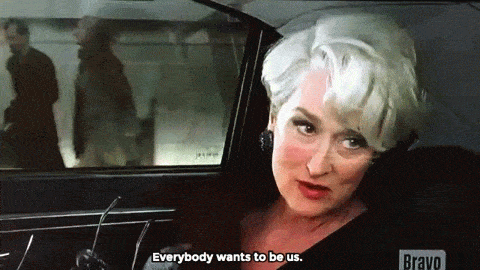
In our pursuit of success, the process takes time and effort. Our society contributes to our disdain for the process of achieving our goals—we reward winners and disregard the ones who tried. We don’t get to see the steps that led to glory. But there’s no shortcut to success, and we must do our due diligence. Learn five reasons to focus the process and the steps you can take to make the journey enjoyable as you head toward your dreams. (Estimated reading time: 9 minutes)
““Success is a journey, not a destination. The doing is often more important than the outcome.”
— Arthur Ashe
“Are we there yet?”
How many times do you remember asking a parent this question? It’s a regular part of childhood, and a common question during a road trip or a plane ride on your way to somewhere exciting.
Being stuck in a vehicle for hours can be a nerve-wracking experience for both parents and children (especially considering the short attention spans and impatience of most youngsters), but every adept parent knows they need a game plan to make the ride enjoyable. They need to shift their children’s focus from getting somewhere to being exactly where they are and liking it.
Parents will bring toys, snacks, a fun playlist, or ideas for family games they could play. Not only does time fly with a full agenda, but they get to spend quality family time together and create fun memories.
Even as adults, many of us still ask some version of the question, “are we there yet?” But this time, the question flows into the ether. “When will my business start generating more revenue?” “When will I finally lose those stubborn five pounds?” “When will I find the love of my life?”
Like children, we harbor an intense desire to arrive at our destinations. In doing so, we tie our happiness and satisfaction to getting there, trapping us in a cycle of endless pursuit. We believe we can only be happy if we achieve X. This type of thinking is called the “if-then” model, coined by former business professor Dr. Srikumar Rao.
According to Rao, happiness is our natural state of being, but we obscure it by believing that something outside of us needs to happen for us to be happy. Instead of attaching our happiness to the fickle whims of fate, we need to anchor into our underlying sense of well-being.
Rao describes the feeling as “I’m OK, I will always be OK, there is nothing that needs to happen for me to be OK, and there is nothing that can happen that will stop me from being OK.”
But to embody this sense of being, we need to manage our inner child, eager to reach that destination. The trick is to focus on the process rather than the outcome.
If you can feel good about your daily actions towards something close to your heart, you’ll stay on track. We can take a page out of our parents’ books and plan for a fun ride as we inch closer to our targets.
Success-obsessed: why our society loves outcomes and ignores the process

Our society significantly contributes to our disdain for the process of achieving our goals. Modern culture rewards results: winning, surpassing, and breaking records.
It’s the athlete that achieves home run championships, the singer that wins multiple Grammys, or the writer who is a NYT bestseller that gets on our radar and makes headlines. We never hear about those who spent a lifetime training and struggling to get a break, only to dim into obscurity. The process does not get you the gold medal; triumphing does.
Given this reward system, it’s no wonder we want to attain outcomes as quickly as possible – because that’s where the glory lies. But to become successful, a person must pay their dues through persistence, sacrifice, hard work, rejection, criticism, and failure. They had a keen focus on the process.
Reading memoirs and watching movies is an effective way to let this truth sink in. When you read about the struggles of people like Nelson Mandela or the number of knockouts that Rocky Balboa endured, you can connect the dots and see that their challenges were stepping stones.
We’ve all heard some version of the “no pressure, no diamond” metaphor. A diamond is formed naturally in the Earth’s mantle after it undergoes extreme temperatures and pressure. Similarly, we can only shine in our full luminous brilliance after the process. The ones who become diamonds are those who remain calm and vigilant as they undergo pressure.
Don’t let society fool you: there is no shortcut to success, and we must do our due diligence. A shift in focus from outcome to performance can turn our failures into strengths, and obstacles into learning opportunities. More importantly, we’ll be happier and more content no matter where we are in our growth trajectory.
Why it’s important to focus on the process

Before we get into the various ways we can fall in love with the process of our becoming, let’s clarify what we mean by “process.”
The formal definition is “a series of actions or events performed to make something or achieve a particular result, or a series of changes that happen naturally.” A process is not a destination but the path you choose to take to get there.
For example, if you want to run a marathon, your process will involve training every day to get into shape and eat a cleaner diet. Processes involve the habits and systems you set up to get to where you’re going. Like rail tracks, they keep you in place as you steadily move forward.
Here are five reasons why you should focus on the process:
1. You’re more in control when you focus on the process than the outcome
When all our focus is on the outcome, we put all our eggs in one basket. This “all or nothing” thinking makes us feel unhealthily attached to a specific result. Attachment can make us needy and desperate. Processes, on the other hand, are under our control. Instead of focusing on what we can’t control, we focus on what we can control. This motivates us to be more strategic, open to feedback, and improve our odds.
2. It improves your emotional wellbeing
When you set up the right systems, you give yourself more opportunities to experience fulfillment. By trusting the process, we take the load off ourselves and continue implementing the steps that we laid out while remaining open to making tweaks. We don’t take challenges and failure personally because we know it is part of the process.
Research shows that achieving an outcome like a new job or an award only causes a temporary rise in dopamine (the pleasure hormone) and lasts only for a brief time. Shortly after that, we return to the level of happiness before the win – this is called hedonic adaptation.
The key is to find intrinsic value in the activities we perform. The process becomes the reward; when we lose ourselves in a task and enter a state of flow where we lose track of time and are immersed in what we’re doing. The wins are the icing on the cake, but the cake is the pleasure we derive from the process.
3. Enduring the ups and downs in a process builds character and makes winning sweeter
The process is a bumpy road; the further we get into it, the more we realize that it’s full of twists and turns. Managing these bends and obstacles demands our fortitude, resourcefulness, and problem-solving skills. These experiences make us who we are and give us the strength and wisdom that builds character.
Ask anyone who becomes successful, and they’ll tell you that those moments of strife taught them the biggest lessons and changed their orientation toward life. They didn’t take shortcuts or hacks and advice from so-called gurus who peddle quick fixes. Instead, they did the work. This made winning a lot sweeter.
4. Focusing on the process is strategic and opens doors to opportunities
A process-focused approach opens a wider field of possibilities. Because you’re not fixated on the outcome, you can notice unknown and unexpected opportunities that might present themselves as you plough through.
Being too focused on outcomes can make reaching your goals more difficult. Russian tennis champion Maria Sharapova said that focusing on outcomes is one of the biggest mistakes that tennis players make. All their attention should be on the ball and their next step. T.S. Eliot captured this truth when he said, “There is only trying, the rest is not our business.”
5. The outcome can turn out to be better than you expected
When all our attention goes toward the process and doing the best we can, we liberate ourselves from expectations, surrendering to the process. Spiritual writer Kute Blackson says that surrender is to “let go of the idea of who we think we should be and how our life should be.” When we let go of our resistance, we engage in a co-creative process with the outside world.
We demonstrate that we trust that we’ll achieve what we desire or that something even better than we expect might come our way. It’s in the space of allowing that magic can happen. “Whatever you do, or dream you can do, begin it. Boldness has genius, power and magic in it.” as Johann Wolfgang von Goethe once said.
How to focus on the process and love it

The process can be enjoyable if you take certain steps. Here’s a strategy that will make you fall in love with it so that you can focus on the process as you head in the direction of your dreams:
1. Break goals down into smaller achievable steps: Setting high aspirational goals can be inspiring, but it can feel demotivating once we consider what we need to do to get there. To make the process less daunting and manageable, break down the goal into smaller parts.
2. Set process goals and reward yourself: Process goals are concrete and based on particular actions that you need to take. They can help you understand exactly what you need to do and why. You can plan, prioritize, and stay motivated to see things through to completion.
For instance, if your outcome goal is to write a book, one process goal could be “spend 1 hour each day researching the topic.” At the end of each process goal, reward yourself with a treat like a spa treatment or a weekend getaway.
3. Use visualization the right way: Visualization is a potent way to stay in touch with your outcome dreams, but you need to do it from a place of strength and assuredness. Visualizing too often causes us to overthink the outcome, and we can get restless and worried when there are lulls. Use visualization when you need a boost, but don’t do it so often that it takes you away from the reality of the process.
4. Focus on the parts you like and delegate the rest: Find stages of the process that you find intrinsically enjoyable and pour your energy into them as much as you can. If you find yourself getting lost in a flow state and derive a sense of satisfaction after completing a task, you know you’ve found something you can put your time into.
If possible, delegate the parts of the process that you don’t like. For instance, you can hire someone to manage your accounts if you’re not a numbers person.
5. Look at life as an adventure: There are many ways we can choose to look at life. What if we decided to look at life as an adventure? We can see ourselves as the protagonist of our own stories, like Indiana Jones, Moana, Jack Sparrow, or Dorothy Gale. Living our lives as an adventure will make it easier and even more fun. We’ll have a healthier perspective on failure, troubles, and hard times and see them as a chance to tap into our inner resources and elevate ourselves.
Life is a process of becoming. There’s a natural ebb and flow to the states we experience. Getting stuck in a single state and remaining there goes against our nature. Instead, stay in the flow while steering your ship in a purposeful direction. In doing so, you’ll experience the depth and breadth of life and all it offers you.
All my best on your journey,
Seline

Question for you: Is it hard for you to focus on the process? What about it challenges you, and what can you do to make it more rewarding?
Did you like this post? Sign up below, and I’ll send you more awesome posts like this every week.

It really is like that old saying, ‘its more about the journey than the destination!” I like what was here- it’s really given me some things to think about, so thank you for challenging us with this kind of great content!